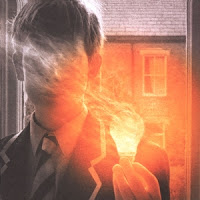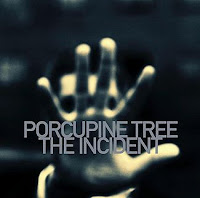Procol Harum Procol Harum (Vinyl/ CD, A&M Records, 1967, CD reissue 2015) ***** Procol Harum Shine On Brightly (Vinyl, Castle Records, 1968, 1988 reissue) *****
Procol Harum A Salty Dog (Vinyl, Castle Records, 1969, 1988 reissue) ****
Procol Harum Home (Vinyl, Fly Records, 1970, 2017 reissue) ***
Procol Harum Broken Barricades (Vinyl, 2 copies - Chrysalis and A&M Records, 1971) ****
Procol Harum Procol Harum Live: In Concert with the Edmonton Symphony Orchestra (Vinyl, - A&M Records, 1972) ****
Procol Harum Grand Hotel (Vinyl, - Chrysalis Records, 1973) ****
Procol Harum Exotic Birds and Fruit (Vinyl, - Chrysalis Records, 1974) ****
Procol Harum Procol's Ninth (Vinyl, - Chrysalis Records, 1975) ***
Procol Harum Something Magic (Vinyl, - Chrysalis Records, 1977) ***
Procol Harum The Well's On Fire (CD, - Eagle Records, 2003) *****
Procol Harum Novum (CD, - Eagle Records, 2017) ****
Genre: Pop, prog rock, rock
The debut album is represented here with a Canadian reissue on vinyl that includes the A Whiter Shade of Pale single (but not Homburg), and a CD reissue that includes a huge amount of bonus tracks - BBC sessions/ B sides and unreleased gems.
The original album is a classic artifact from 1967. It's best described as song based psychedelic rock with classical influences. The arcane lyrics are from Keith Reid. It all works spectacularly well.
Thanks to working for a return spell at Marbecks Records, I have their second and third albums as a double album twofer reissue.
Shine On Brightly is a prescient title - the band did indeed shine on, brightly. The album has a kind of mad genius vibe to it as they pushed forward in a progressive mood. The magnum opus is In Held, 'Twas I - a suite that has a smile and a swagger to it. A work of art? In 1968? Sure nuff.
A Salty Dog is an eclectic mix of styles and is probably best described as a transitional record, away from prog and more into blues rock territory. It has the sublime title track - one of prog rock's finest moments.
These two albums show off the early Procol Harum strengths - Gary Brooker's vocals, Keith Reid's lyrics, organ by Matthew Fisher (Salty was his last for the band until a reunion later on) and the understated guitar by Robin Trower with the understated drums of B.J. Wilson. No one ever gets in the way of the song in Procol Harum.
Fourth album, Home, saw some personnel changes. Fisher and David Knights were replaced by Chris Copping, with the resulting sound now being a mix of the brooding quiet numbers and the rocking out sound begun on Salty. Robin Trower's guitar has become much more dominant on this album.
I own two copies of Broken Barricades. The album has one of those cut out covers like Led Zeppelin's Physical Graffiti and some plonker had coloured in a face on the Chrysalis one, so I looked for a clean copy (it's on A&M).
This was Trower's last album with the band before returning in 1991. The style is like Home - more rock than prog rock, the latter is my preference for Procol Harum. That said, Trower is in great form and the four-piece version delivers an excellent set.
With Trower gone (replaced, briefly, by Dave Ball) and Alan Cartwright joining on bass (Chris Copping moved to organ and harpsichord), Procol Harum next released a live album, made in Canada with the Edmonton Symphony Orchestra and the Da Camera Singers.
It's a stunning record - the orchestra and addition singers add texture and gravitas, but never overwhelm the band. Conquistador - a big hit when released as a single, A Salty Dog and In Held 'Twas In I are all outstanding versions.
The album rebooted their prog rock instincts, so that the next album, Grand Hotel returned them to a pomp and glory prog rock sound. Dave Ball lasted for just the Procol Harum Live album, he was replaced by Mick Grabham. In many ways this enabled the band to return to the sound of the early albums.
Grand Hotel tends to be undervalued in their catalogue, but I really like it, as it reminds me of life in 1973 in a positive way. Gary Brooker's vocals are superb on this record.
Exotic Birds and Fruit was their seventh studio album. They have a rockier approach for this one; Gary Brooker -"We made the live album with an orchestra. We'd then taken the orchestra into the studio for 'Grand Hotel'...we'd had enough of orchestras".
Maintaining the album a year schedule is laudable. The streak continued with Procol's Ninth in 1975. Leiber and Stoller were the producers and they concentrated more on song structure than the sound. Even so, it's not the strongest set of Brooker/ Reid compositions this time around. There are even two covers. One is even an unnecessary (and awkward sounding) Beatle song - Eight Days A Week.
Something Magic came out in 1977 (the album a year streak was done). It doesn't quite live up to the title, but it's still a worthy album in their vast catalogue.
That said, I'm not fond of the synths (played by latest member Pete Solley); aside from that it's a suitably strong album musically. Side 2 has the epic The Worm & The Tree. My copy also includes the single Wizard Man which isn't listed on the cover.
This would be the last Procol Harum album until 1991's The Prodigal Stranger - a reunion of Brooker and Reid with Trower and Fisher (Barrie Wilson had passed away in 1990). I passed on that one, but I did buy a copy of The Well's On Fire while living in England.
It's well named because it's a major return to glory with a rockier approach. Brooker, Reid and Fisher are joined by three other musicians for this one - Geoff Whitehorn (guitar); Matt Pegg (bass), and the mighty Mark Brzezicki (Big Country) on drums.
Pretty remarkable really - who would have thought Procol Harum would be relevant again in 2003?
Novum is the last album on my list and the final Procol Harum album (Gary Brooker died in 2022; Keith Reid died in 2023). This is the first album not to have Keith Reid as the lyricist (Pete Brown is an able replacement) and Gary is the only original member of the band by this point. It's an excellent end to a brilliant career.
Where do they all belong? I've turned into something of a completist for Procol Harum, so I'll need to catch up with a few albums missing from my collection: The Prodigal Stranger (got poor reviews so I've avoided it); some live albums and a BBC collection remain for me to collect.



.jpg)







.jpg)
.jpg)

_Front_Cover%20(1).jpg)

















.jpg)






.jpg)
.jpg)
.jpg)




